Latest Findings Published in LWT-Food Science and Technology, 2025
Food spoilage and contamination by foodborne pathogens remain major challenges for the global food industry. Currently, the industry widely uses chemical preservatives such as sodium benzoate and potassium sorbate to extend shelf life. However, excessive use of these additives may pose potential risks to human health and the environment, such as metabolic interference and even chronic diseases from long-term overconsumption. Therefore, the search for safe and effective natural preservatives has become a research hotspot.
A recent study published in the international journal LWT-Food Science and Technology (Issue 215, 2025) revealed that potassium cinnamate, a natural compound, exhibits excellent antimicrobial activity and biological safety, making it a promising alternative to chemical preservatives in the food industry. The research was jointly conducted by the Key Laboratory of Fermentation Engineering (Ministry of Education) at Hubei University of Technology, the State Key Laboratory of Bioreactor Engineering at East China University of Science and Technology, and other institutions. The team systematically demonstrated the inhibitory effects and mechanisms of potassium cinnamate against common foodborne pathogens.
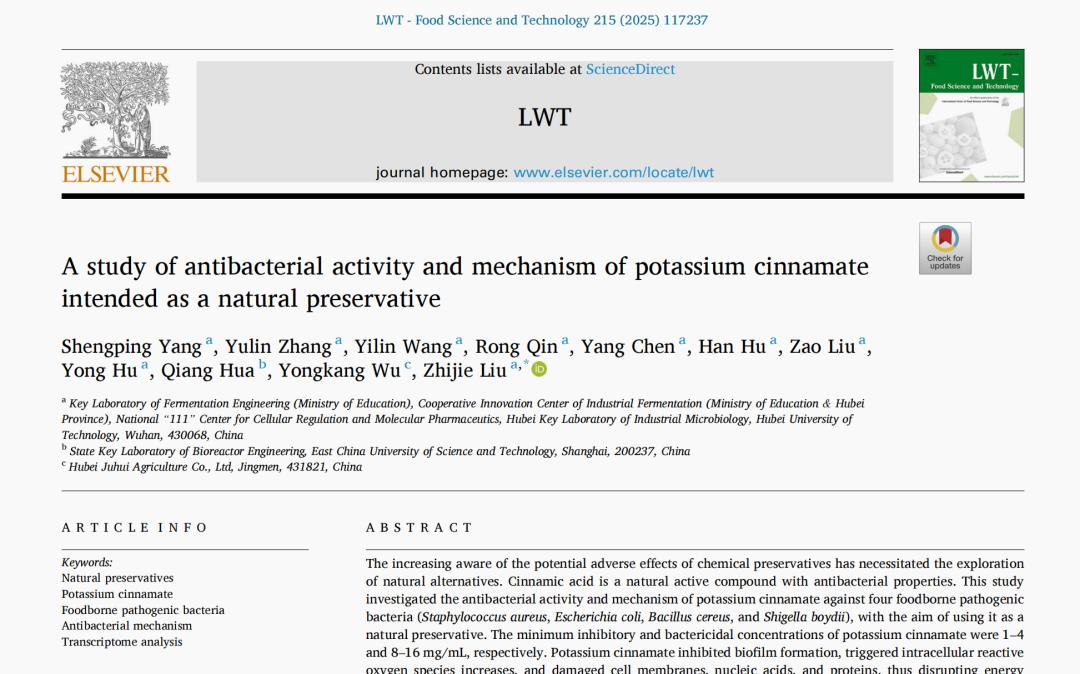
1. Significant Antimicrobial Activity, Superior to Multiple Chemical Preservatives
The study found that the antimicrobial efficacy of potassium cinnamate is comparable to sodium dehydroacetate and superior to sodium benzoate and potassium sorbate. Specific data are as follows:
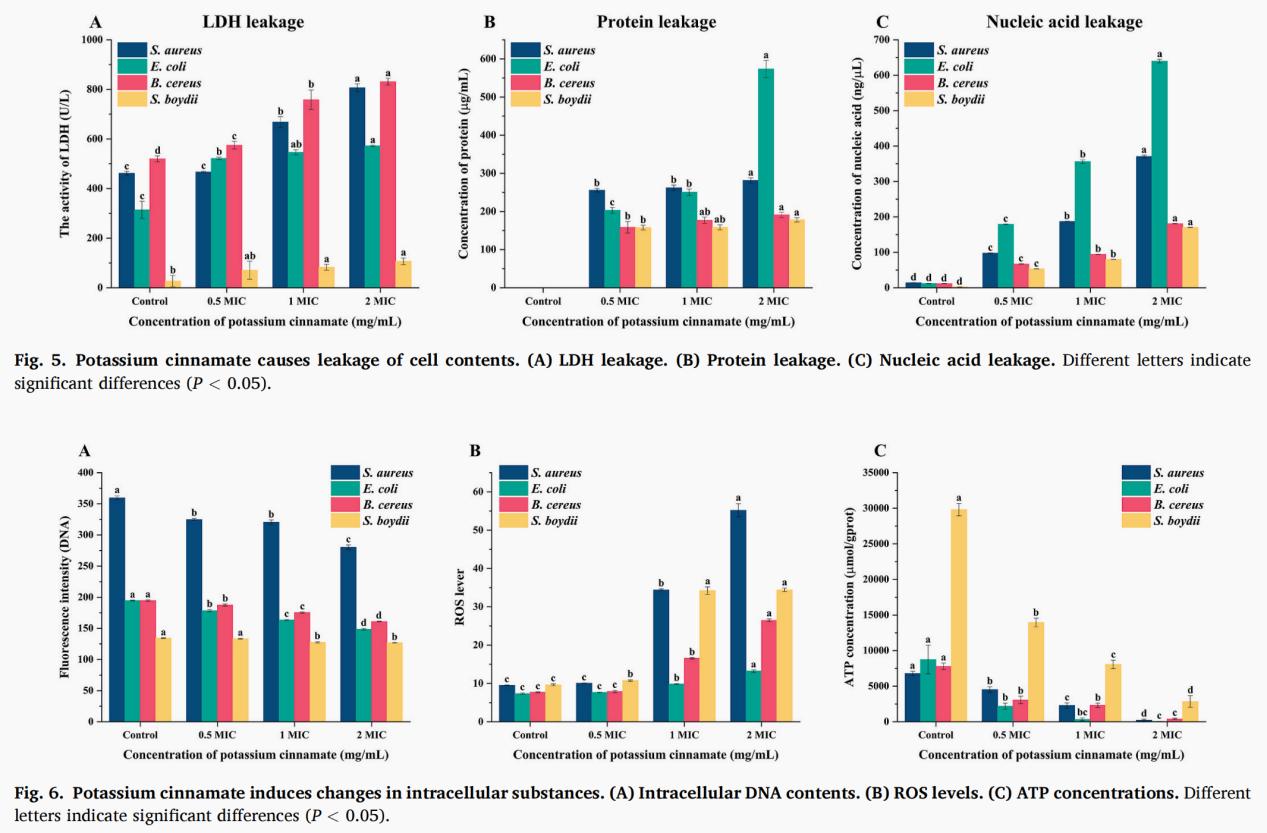
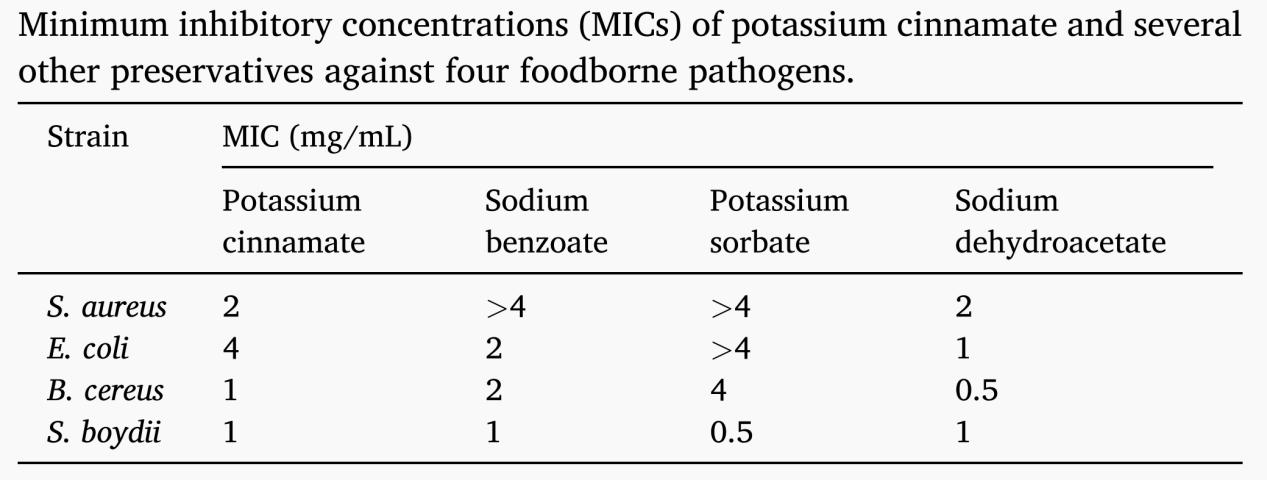
2. Clear Antimicrobial Mechanism – Multi-Target Inhibition of Pathogens
The study also revealed the underlying antimicrobial mechanism of potassium cinnamate:
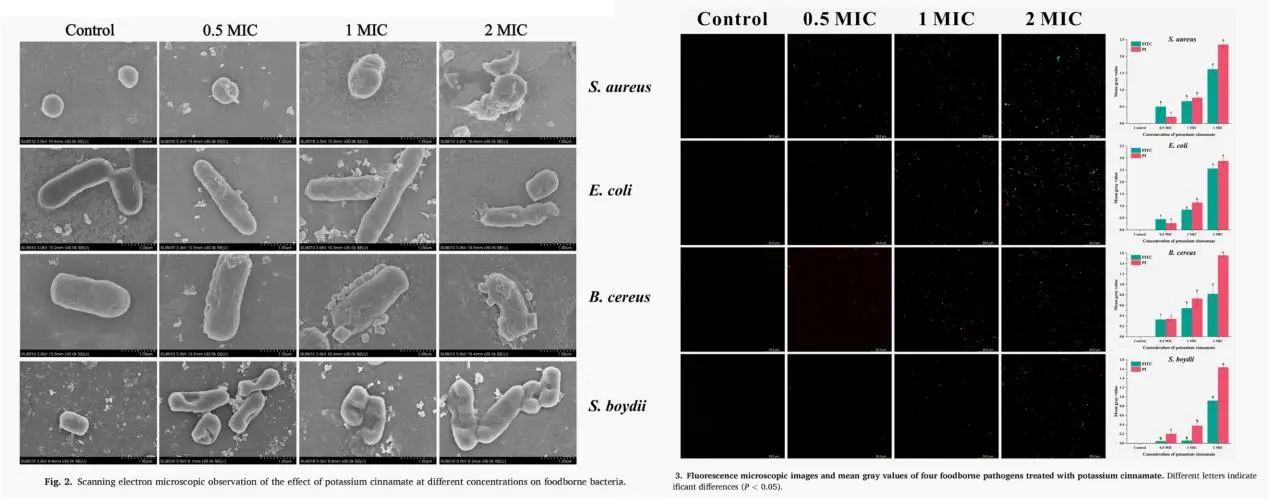
3. High Biological Safety – Harmless Metabolic Pathway
Safety assessments, including hemolysis and cytotoxicity tests, confirmed the high safety profile of potassium cinnamate:
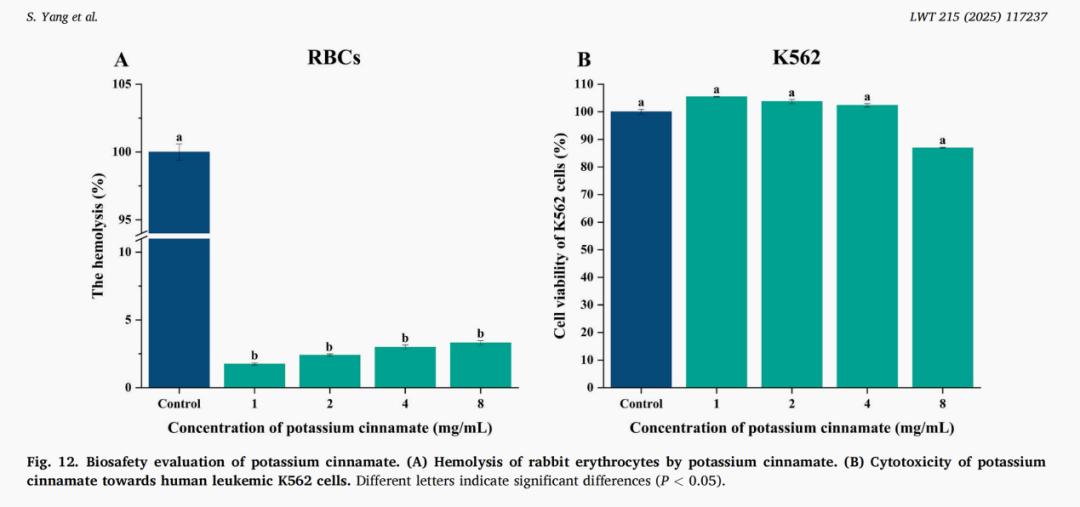
In terms of metabolism, potassium cinnamate is converted in the human body into phenylalanine (an essential amino acid), with most excreted through normal metabolic processes and a small portion converted into tyrosine. The entire metabolic pathway produces no toxic or harmful effects. Notably, its active preservative component, cinnamic acid, was recognized as GRAS (Generally Recognized As Safe) by the Flavor and Extract Manufacturers Association (FEMA) as early as 1965.
In summary, with its strong antimicrobial activity and reliable biological safety, potassium cinnamate holds great promise as a natural alternative to chemical preservatives in the food industry, offering a new solution to the challenges of food spoilage and pathogen contamination.
Free
sample